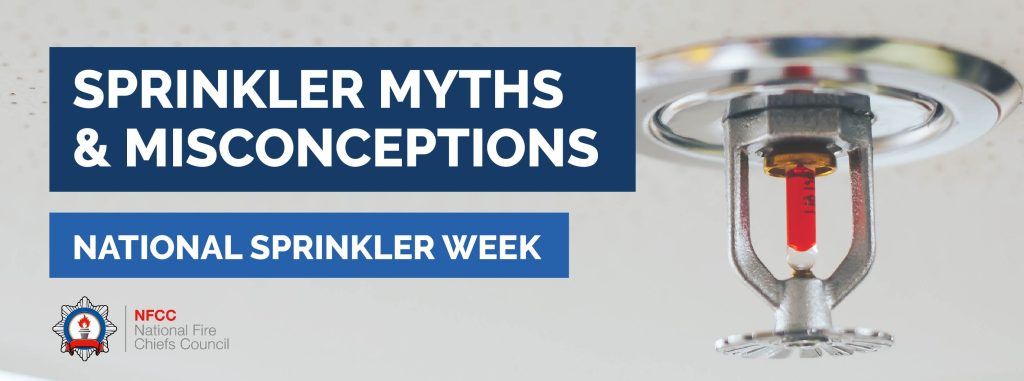
The latest statistics are a sobering read. Fires are on rise.
Fires increased by 28% to nearly 180,000 fires attended by Fire and Rescue teams (year ending September 2022) with a 9% increase in primary fires. They’re the kind of fires that involve people and property and valued possessions.
Whilst fire is always devastating, 276 people sadly lost their lives in that year.
But did you know that installing Fire Sprinkler systems or Residential Fire Sprinkler systems can significantly reduce the risk of a serious fire and increase chance of survival? In fact, the chances of surviving a domestic fire are around 60% where smoke detectors are fitted, rising to a staggering 95% if sprinklers are ALSO used?
If you’ve discounted installing Fire Sprinklers, learning about their role in fire detection and suppression may just change your mind – and help save lives in the process.
Let’s start by understanding the basics.
What are Fire Sprinklers?
Fire Sprinklers are a key component of a building’s fire protection system and have been around since the late 19th century. They’re installed in walls or ceilings and pressurised water is sprayed out when a fire is detected. Sprinklers are used widely across a whole manner of buildings to safeguard people but also manage risks. It’s telling that insurers know that sprinklers are a great way to protect your property and often reduce insurance premiums where they’re installed.
Sprinklers form part of both a Fire Suppression and Fire Detection system and work to actively control any fire. This can buy people valuable time in evacuating a building due to fire and control the extent of the damage the fire causes.
So let’s dispel some of the reasons you may have for not installing Residential Sprinkler systems.
Myth 1: A fire detection system is enough.
Whilst fire detection systems are essential and provide early warning that there is a fire in a building, alarms do nothing to suppress or extinguish fires. Fire spreads rapidly. Fire Sprinklers will provide extra time for safe evacuation and stop the spread of fire.
Myth 2: Fire Sprinkler systems are expensive to maintain.
Did you know that Fire Sprinkler systems usually last for the lifetime of a building if they are properly maintained without full replacement? In fact, systems installed in the 1930s are still operational today!
It’s recommended that Sprinklers are maintained twice a year (once for small systems) making them a very cost-effective and efficient investment.
Myth 3: If one sprinkler head is activated, all the other sprinklers activate too.
Over the past 20 years researchers have proven that most fires are contained or suppressed by just six sprinkler heads being activated!
Myth 4: The water damage costs more than the fire damage.
Fire fighters use powerful pressure fed water hoses to fight a fire and the force of these water jets can also come at a price. Sprinklers expel water with less force, water damage will still be present but to a much less extent.
Why not connect your sprinkler system to our in-house dedicated Alarm Monitoring and Receiving centre ? There a team of trained specialists react rapidly to alarms, contact the fire service on your behalf when sprinklers are activated, get them to your fire as quickly as possible and once the fire is extinguished, will stop the sprinkler system to stem any further water damage.
Where should Fire Sprinklers be installed?
Whilst the ideal is to have Fire Sprinklers installed when designing a building initially, there are many occasions where Fire Sprinkler systems are fitted after the building has been completed.
Residential Fire Sprinkler systems should be fitted in Social Housing, Care Homes, Student Accommodation, Nursing Homes and more.
Why should I install Fire Sprinklers?
If your objective is to safeguard people’s lives and the property you are responsible for, then Fire Sprinklers or Residential Fire Sprinklers could be the addition you need in your existing fire protection arsenal.
The installation of Fire Sprinkler systems:
• significantly improves chances of survival in a fire
• reduces fire injuries by at least 80%
• reduces property damage by 90%
• substantially reduces the damage to the environment
• potentially reduce your insurance premiums
What are the key benefits of installing Fire Sprinklers?
There are a whole host of benefits from installing and maintaining your Residential Fire Sprinkler systems. Saving lives is of course the ultimate benefit and this is reason enough to install Sprinklers, however, other benefits include extinguishing and controlling fires from spreading, reducing the cost of fire damage, safeguarding property and in some cases, reducing insurance premiums.
How can Marlowe Fire & Security help you with your Residential Fire Sprinkler system?
If you’re looking to partner with a team who are dedicated to saving people, property and possessions, you’ve found the team to work with. With in-house technical experts to assist from an initial design of projects from Social Housing, to Student Accommodation, Residential Blocks, Residential Care and Nursing Homes, we also offer installation and sprinkler maintenance to your existing systems.
Sources
Gov.uk
British Automatic Fire Sprinkler Association (BAFSA)
Business Sprinkler Alliance (BSA)
